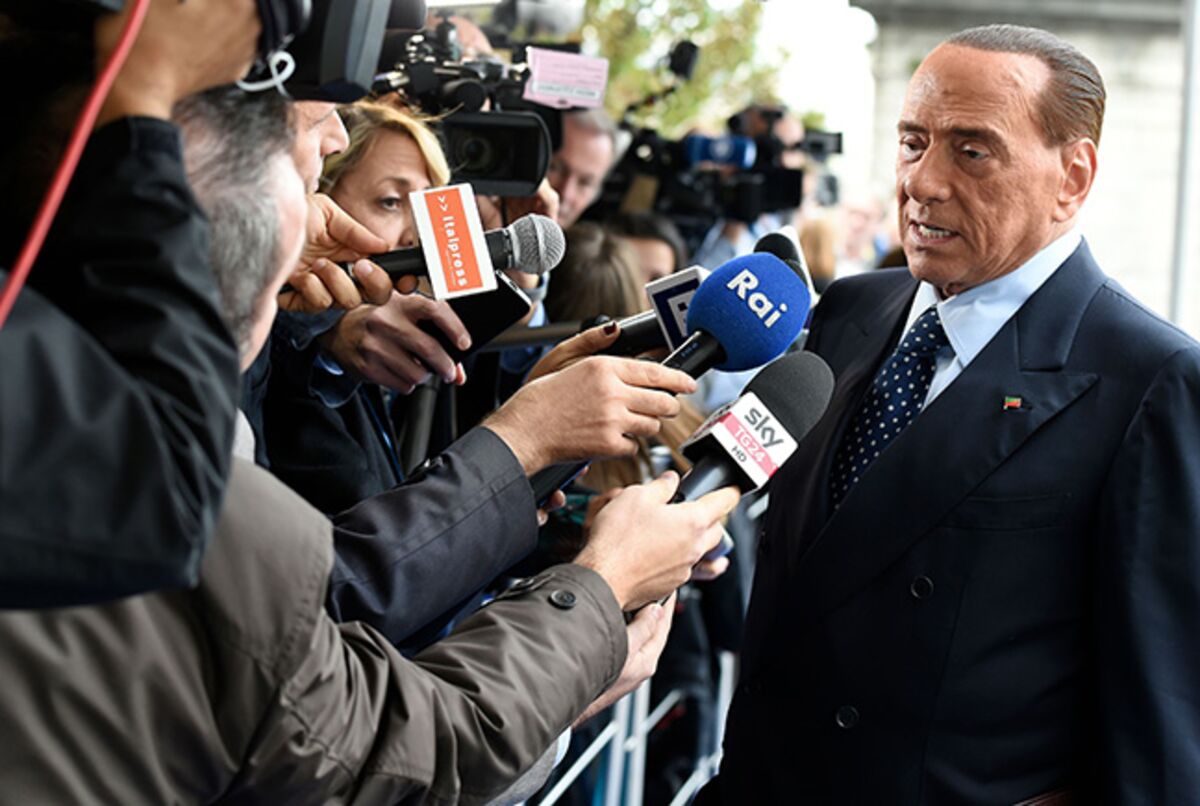
Fresh from electoral victory in Sicily, Silvio Berlusconi has two significant hurdles to clear before he can set his sights on Rome.
The four-times premier is vying to lead Italy’s center-right political forces into next year’s general election. But first he needs to overturn a court ban on his running for office and overcome his rival for the post, Matteo Salvini of the euro-skeptic Northern League.
With the Italian vote due in as little as four months, Berlusconi, 81, has appealed to the European Court of Human Rights in a bid to quash a ban on seeking public office that resulted from a 2013 tax-fraud conviction. He has consistently denied all wrongdoing.
Yet even if the European court fails to reach a decision in time, as seems likely, “the Great Communicator” still has talents that could help him to wield power in the next administration, according to Sergio Fabbrini, director of the school of government at Luiss University in Rome.
“Berlusconi has always portrayed himself as a victim of the establishment, and he could play the elder statesman of a center-right bloc even if he can’t be premier himself,” said Fabbrini. What’s more, Berlusconi “is a maestro at campaigning,” Fabbrini said. That may help his Forza Italia party to come in ahead of Salvini’s League in the election, enabling him to impose Antonio Tajani, a former Berlusconi spokesman who is now president of the European Parliament, as Italian premier.
Instability Beckons
The victory of a center-right coalition led by Berlusconi’s party in Sunday’s vote for Sicily’s governor and assembly prepared the ground for the biggest item on Europe’s electoral calendar next year. With Italy’s economy underperforming its peers and the populist, European Union-skeptic Five Star Movement seeking power, elections reportedly due as soon as March 4 risk adding political instability just as the continent enjoys a fragile recovery.
In Sicily, the center-right alliance halted -- at least for now -- the march of Five Star, which started out as favorite on the island only to place second. It was also a setback for former prime minister Matteo Renzi, who faces dissent within his Democratic Party after his candidate came in third.
That sharpens a contest for dominance between Berlusconi and Salvini, whose parties are neck-and-neck in opinion polls. The two have long jostled for influence, with the 44-year-old chief of the anti-migrant Northern League repeatedly saying that whomever takes the most votes next year will be leader of the center-right.
Berlusconi said in Sicily last week that he had agreed on a government program with Salvini and Giorgia Meloni of the small, far-right Brothers of Italy party involving “less constraints from the European Union, less taxes and less state.” Salvini, who has a history of criticizing the euro, responded that the Sicily vote was not “a general rehearsal for government” at the national level.
Campaigns Gear Up
To Vincenzo Longo, an analyst at IG Markets in Milan, the vote in Sicily “was a milestone before the parties effectively start their campaigns for the general election,” he said by phone. “The center-right win has reshuffled the pack: the parties see the field is very tight, with a hung parliament possible, so they’re going to step up their efforts.”
Investors have yet to sit up and take notice, far less panic. Italian stocks were marginally up on Monday, while benchmark 10-year government bond yields slid 1 basis point to 1.
Surveys show a possible center-right bloc leading both Five Star and Renzi’s Democrats ahead of next spring’s election, but none of the three would have an absolute majority, prompting a hung parliament. Possible scenarios include a “grand coalition” of the Democrats and Berlusconi’s party, perhaps led by Renzi or his party successor as premier, Paolo Gentiloni.
Five Star faces an uphill battle after Sicily -- its first big setback, according to Fabbrini. “They didn’t manage to persuade people who don’t usually vote to go to the polling stations,” he said. “They seem to have reached a glass ceiling, penalized by a record of poor government especially in Rome.”
Renzi Slapdown
On the center-left, Renzi risks seeing his ambitions of a return to the premiership called into question by critics inside his party after Sicily. With a new electoral system favoring campaign alliances, Renzi, 42, is likely to come under new pressure to forge an accord with the small Democrat and Progressive Movement (MDP), formed by a faction which abandoned the Democrats, and with other parties on the left.
Luigi Di Maio, Five Star’s 31-year-old candidate for the premiership, pulled out of a television debate with Renzi due Tuesday, writing in a Facebook post that after “the earthquake of the vote in Sicily,” Renzi was no longer the Democrat candidate for the post.
“You chose the date, the TV, the host. And now you’re running away?” Renzi retorted on Twitter. “A leader doesn’t flee.


0 comments:
Post a Comment